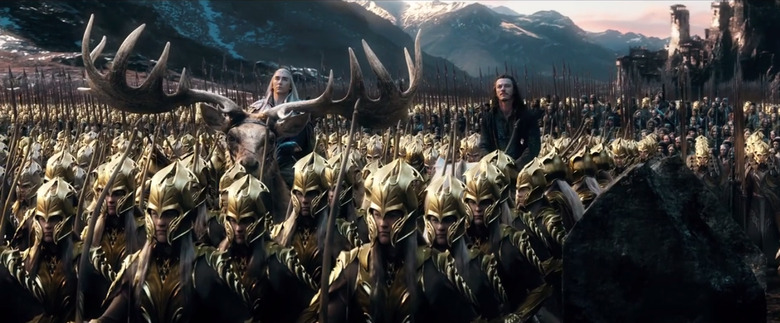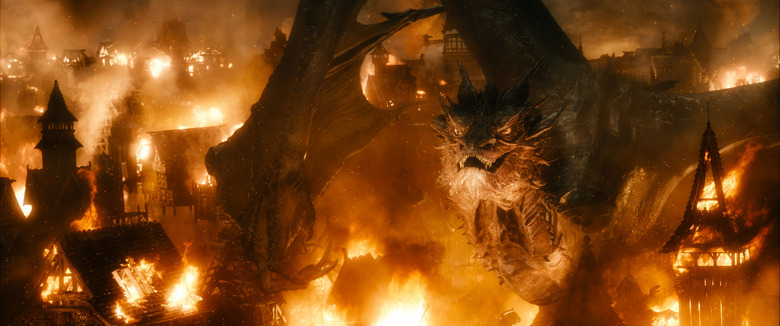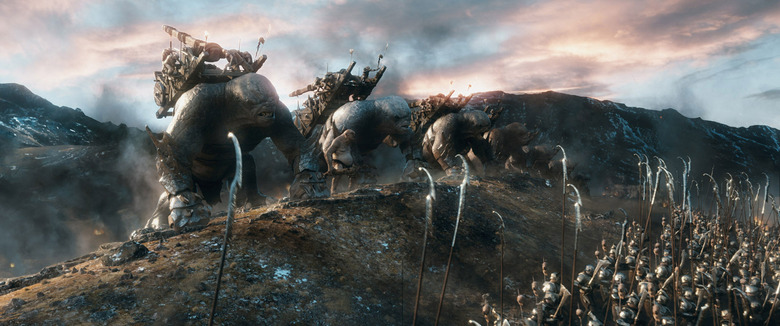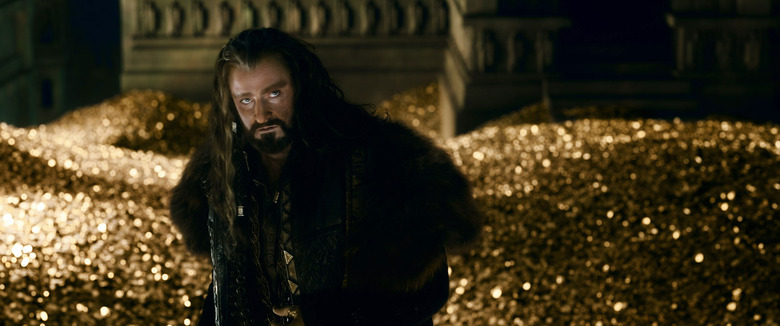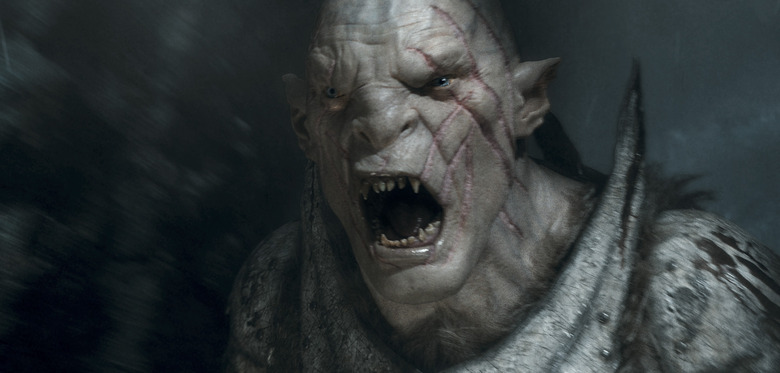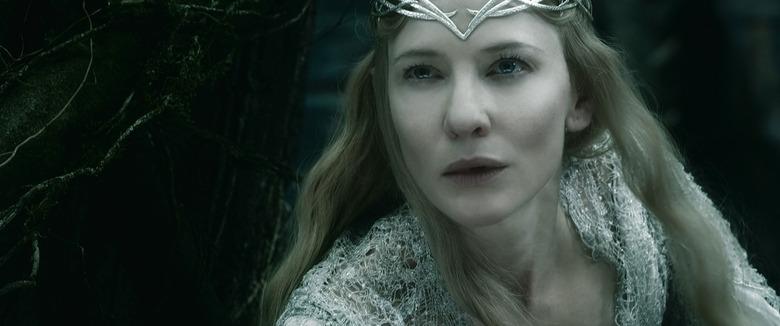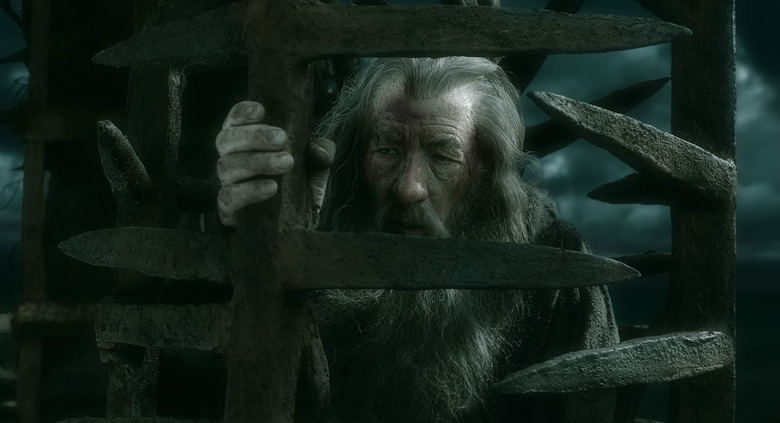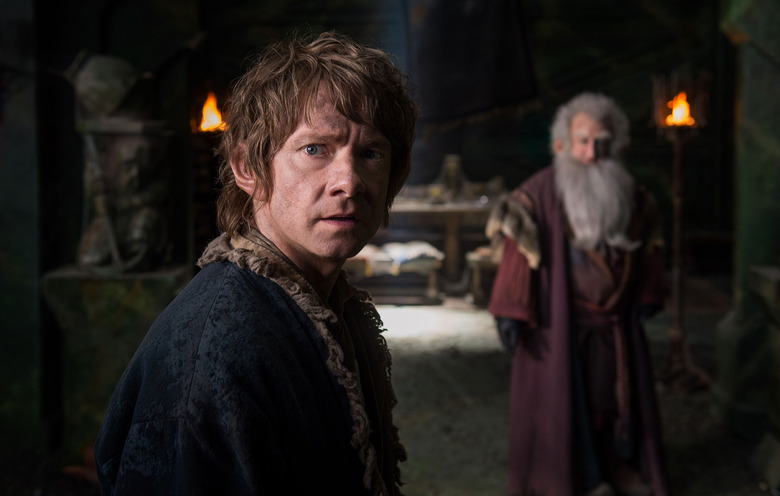Why 'The Hobbit: The Battle Of The Five Armies' Is The Worst Peter Jackson Hobbit Movie [Movie Review]
Note: This review originally ran on December 9. We've republished now that The Hobbit: The Battle of the Five Armies is in theaters.
Every time Peter Jackson returns to Middle Earth, we expect something special. All of his Lord of the Rings films got Best Picture nominations and while The Hobbit films haven't lived up to the achievement of the first three movies, they've had their moments. In my reviews of An Unexpected Journey, and The Desolation of Smaug I found things to like about each film, despite their flaws.
So, following the trajectory of the first trilogy, I hoped The Hobbit: The Battle of the Five Armies would be the best of the bunch. Imagine my disappointment to find out it was the opposite. Below, read our Hobbit The Battle of the Five Armies review.
Here are the reasons why The Hobbit: The Battle of the Five Armies is the worst Peter Jackson Hobbit movie.
Return of the King vs. Battle of the Five Armies
When Peter Jackson last concluded a trilogy, he made one of the best films of all time. The Lord of the Rings: The Return of the King is a masterpiece. It's a film I'll watch and get emotional about any time it's on. That's because not only does it work as a fantastic cap on a great story, it works perfectly as its own story. There's a beginning, a middle and, a few, ends. All of the big action and emotional beats are earned within the movie you're watching. The fact you have two movies with these characters before hand only bolsters that fact. A character like Aragorn or Frodo is a different person not only from the beginning of the trilogy to the end, they're a different person from the beginning of the one movie to the end of that movie. The way the film stands on its own, even more so than the previous two films, is what makes it so special.
I say all of this because The Hobbit: The Battle of the Five Armies does none of that. It fails by doing exactly what it's supposed to do – being the third act of a story. The film is 144 minutes of almost non-stop action with no real arc. It has some dazzling excitement but it fails to resonate because it all lacks emotional weight. It's as if Jackson took what should have been the final 30 minutes of his movie and stretched it by two hours. What you're left with is a very beautiful, suitably exciting film that feels completely empty.
The First Two Films Are Essential Components
Make no mistake, if you haven't seen the last two Hobbit movies, The Battle of the Five Armies is not for you. The film quite literally picks up as that one ended, with the dragon Smaug attacking Lake Town. There is no prologue or training wheels to get you back into the movie. It just starts, and this event, which many consider the climatic moment of the book The Hobbit, ends before the title of the film comes up.
Big, Jaw-Dropping Moments Cancel Each Other Out
Once that's done, Jackson moves all his chess pieces to their places on the board, and they just go at it. You know those iconic, unforgettable action moments in Return of the King? The Rohan storm Pelennor Fields; Eowyn kills the Witch King; Aragon arrives at Gondor with a ghost army? Those are great moments that give goosebumps. Well, The Battle of the Five Armies is basically a two hour string of those. Moment after moment of incredible feats of battle that eventually lose their "wow" because they're all stacked up against each other. When we saw Legolas take down an elephant in Return of the King, it was amazing because we'd never see him do anything quite like that. In this movie, he's got at least five moments on par with that feat.
Little Character Development
Those moments would be okay if they helped progress the characters in any way. They don't. Very little in The Battle of the Five Armies does anything to develop any character from where they were at the end of the last film. By far the most dynamic is Thorin (Richard Armitage) because, at the start of the film, he's got "Dragon sickness," which means he's been driven mad by gold, much like his Grandfather in the prologue of the first film. It's not a huge spoiler to say he gets over it, and that change (which is done in a weird, hallucinatory way) is the most broad character growth in the entire film.
One-on-One Scores Are Settled
One of Jackson's decisions that works is the call to reduce the gigantic "10,000 on 10,000" battle stuff. It's in there, but most of the fighting is much more intimate. He gives almost every single main character their chance to shine. Which is nice, but considering they're basically just continually intercut with each other (80% of the movie takes place over one day in one place) none of it really stands up.
The End Credits Are the Best Part
So the five armies fight and the action is great, and our heroes from the previous films have their shining moments. Then, once the dust has settled, you're expecting the good stuff. Jackson finally make a seamless bridge to his Lord of the Rings trilogy. Well, this half works. Once Jackson finishes the battle, he creates a pretty solid final few minutes. The ending, and the credits in particular, are the beautiful ode to the rest of this odd trilogy. Eventually, it ties right back into The Lord of the Rings, just as the first film began.
Sauron Short-Changed
However, the connective tissue we expected in other aspects isn't that strong. The origin of Sauron is handled in one very cool, but very tangential scene early in the film. It features Cate Blanchett, Hugo Weaving, and Christopher Lee and kicks tons of ass. It also doesn't fit in with the movie at all, because the movie mostly all takes places somewhere else. The scene feels arbitrarily placed as an afterthought. It serves to get Gandalf out of the cage and to wrap up the weird asides with the Necromancer from the first two movies, but it's rushed in comparison to everything else. This scene is the perfect example of how, instead of making a bridge movie, Jackson has basically taken what should have been the last act of one of his extended editions and released it as one film.
Conclusion
Maybe it's not fair to compare The Hobbit: The Battle of the Five Armies to The Lord of the Rings: The Return of the King. After all, Jackson had a whole book to adapt there and here he has a precious few pages. Still, the absolute satisfaction and resonance I felt after seeing that movie is not present here. Then, I felt like I'd been a part of something truly special. The Hobbit: The Battle of the Five Armies has a few good moments, but mostly it's just a merciful means to an end.
/Film rating: 4 out of 10

